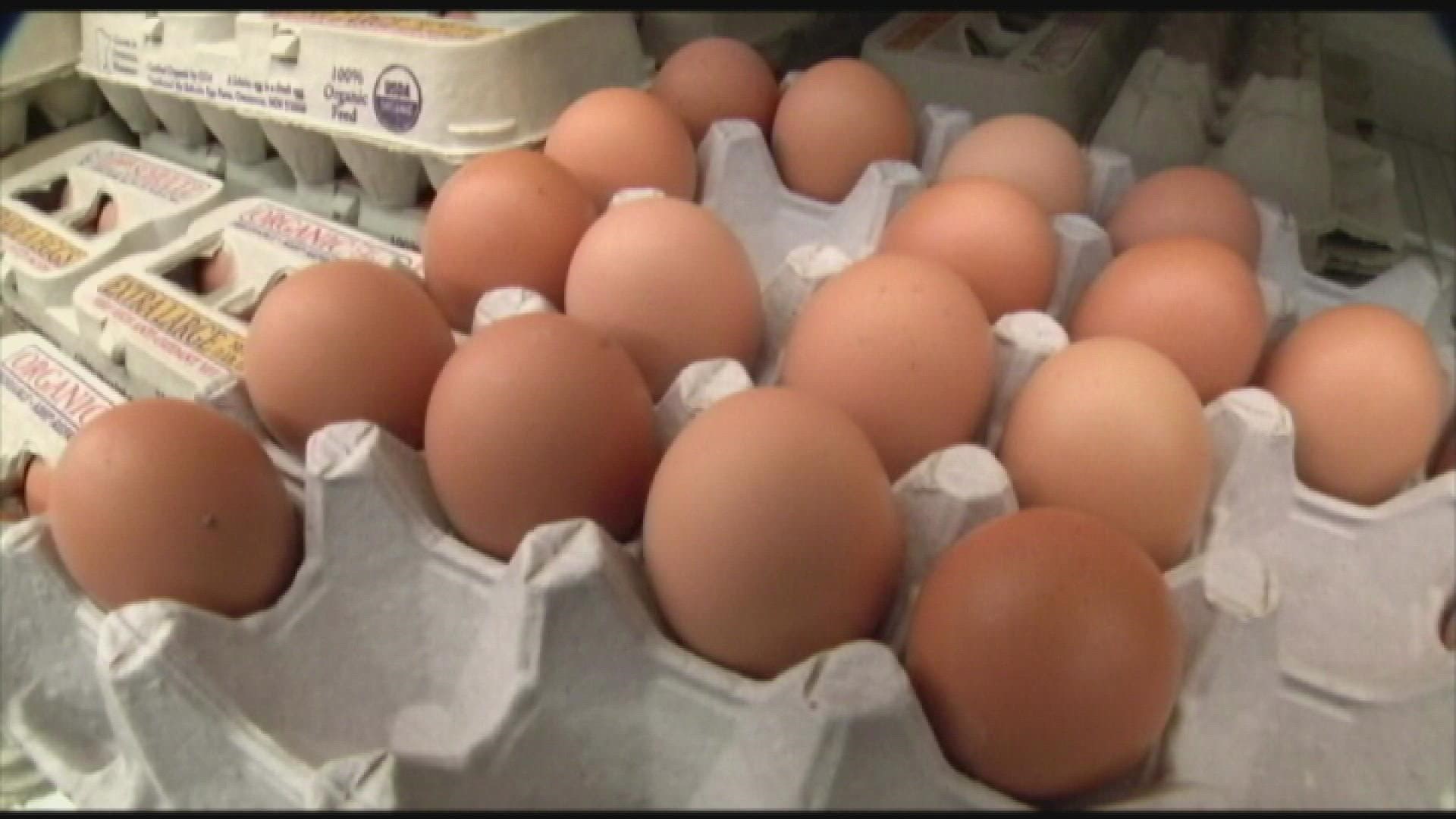ARIZONA, USA — Like so many other groceries, egg prices are up in Arizona. According to the U.S. Bureau of Labor Statistics, egg prices have risen 49.1% from November 2021 to November 2022, the latest data available.
Experts think it's a variety of factors contributing to the rise across the country, including inflation and the avian flu. But note Arizona could have an additional factor at play as well: A new regulation on eggs sold in the state.
Avian flu and eggs sold in Arizona
For months, experts have noted how the avian flu has impacted egg prices across the United States.
Millions of birds have been lost to the disease across the country, according to the CDC.
In Arizona, only two small outbreaks have been reported by the CDC; those were out of Yavapai County in November.
But still, Jerome Rosa, Associate Director of Animal Services for the Arizona Department of Agriculture, said about half of the eggs sold in Arizona come from out-of-state. Rosa added that Arizona egg producers do produce enough eggs to feed the state's egg needs, but some of those eggs get shipped out of state and even out of the country.
Chelsea McGuire, Arizona Farm Bureau's Director of Government Relations, said the avian flu can't be ignored when looking at egg prices right now in Arizona.
"That caused the depopulation of a lot of commercial flocks across the country. So what that means is we have a lesser supply of eggs," McGuire said.
In addition to the avian flu, McGuire credits inflation in general as a cause for egg prices rising.
"Look at everything that it took to get that from the field to your grocery store. All of it got more expensive. And so that's what we're seeing right now," McGuire said.
>>VERSIÓN EN ESPAÑOL: Arizona adopta nuevas regulaciones en medio de los altos precios de huevos
New state regulations
Last year, the Arizona Governor's Regulatory Review Council approved new regulations on eggs sold in Arizona.
Now, any eggs sold in Arizona have to have about double the space for hens who produce the eggs. The new regulations started taking effect on Jan. 1, 2023.
In total, hens now are to have 144 inches, one square foot, of space in their cage to produce eggs that will be sold in Arizona grocery stores. That's up from the 67 inches of space that was previously allowed. It basically cuts the number of hens producers could have in their space in half.
Come January of 2023, the regulations will expand to "cage-free" standards, which Rosa said is the same one square foot of space per hen in the barn, but without the cage itself.
The Arizona Farm Bureau opposed the new regulations in front of the Arizona Governor's Regulatory Review Council.
"We're going to restrict our supply that way. So we're not going to have the ability to respond to some of the supply crises and supply shocks in the system if we're restricting the kinds of eggs that can be brought into our state," McGuire said.
Why the change?
The change was supposed to start going to effect in October but was delayed because of the avian flu.
"This is something that the consumers wanted, the legislature mandated us to do this, and it's something that meets the national standards," Rosa said.
Arizona is named the 10th state for making the move to cage-free egg production.
So far, Rosa said, egg producers in and out of state are working towards being compliant with the new rule. Out-of-state producers have to sign an affidavit that they are in compliance, Rosa said.
As for the estimated cost of the changes, the state cited studies that estimate the average cost of the changes to cage-free production as about two cents an egg, or 23 cents per dozen.
"Which comes out to the average consumer about $5 per year. But it's something that, you know, the consumers have wanted," Rosa said.
Up to Speed
Catch up on the latest news and stories on the 12News YouTube channel. Subscribe today.


